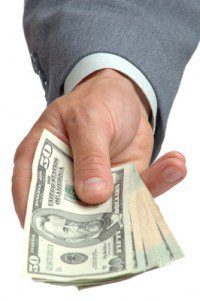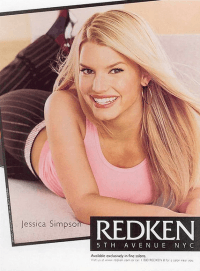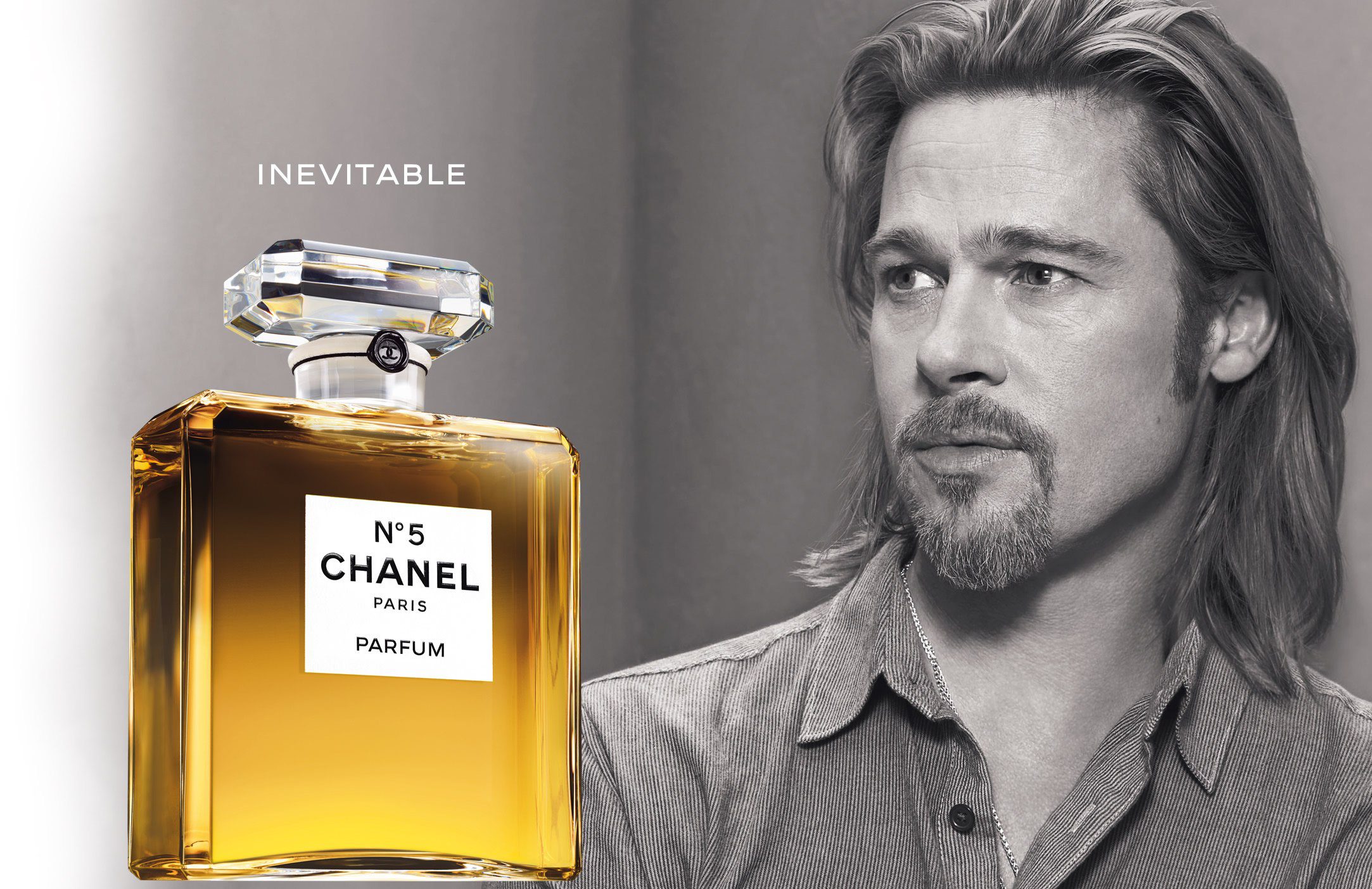What’s your opinion of the celebrity endorsement as a marketing investment?
To what extent can an external spokesperson be an authentic representative of a brand? If your brand has (or more likely wants to “achieve”) authenticity, is it a good idea to hire a celebrity? The answer to these questions, in my mind, is likely to be no. However, that obviously will depend on the brand and the spokesperson (and his/her remit). The bigger question is whether your brand is credible and authentic in the first place? Does it have a code, values and/or a track record of behavior that speaks to being authentic?
Brand alignment via celebrity endorsement
This post was prodded by an exchange with Andrew Grill whose post tackles this topic: Do we need celebrity endorsements in the Age of the Influencer? I have long felt that celebrity endorsements are a questionable marketing strategy, despite having signed a celebrity during my time at Redken (part of the Professional/Salon Division of the L’Oreal Group). In this particular case, it was Jessica Simpson who was the Redken model for a brief stint (2001) at the beginning of her career. In our case, we liked Jessica because (1) her mother had been a hairdresser, so there was a viable link to our hairdresser brand; and (2) she could put on a performance (at our major convention/event called the Redken Symposium) to create some energy and engagement with our customers. I certainly feel that we had a good reason to associate ourselves with Jessica, especially since she was on the cusp of going big at the time. I would add that, at the time, Jessica had a rather wholesome and agreeable attitude.
Celebrity endorsement value?
What does a celebrity bring in order to validate the huge paycheck? An audience and their fanbase. Some have a talent that can augment the experience (e.g. singing). But, the big question for the brand marketer is whether the person will truly re-present the brand toward current and/or prospective customers? Will she/he inspire that elusive word of mouth?
 In today’s world, it is true that, as much as the digirati may promote the pre-eminence of mobile and social media marketing, mass media in the form of TV, magazines and radio all still have a vibrant if not dominant place in the marketing mix. {Tweet} Yet, the true challenge for brand marketers is to find a mix of messages that coordinates commercial imperatives, listening skills and a sense of meaning. {Please Tweet!} When I refer to the 5E’s of the new marketing, the opportunity to resonate with one’s audience relies on tapping into a more emotional sphere. The faked smile, the forced kindness, the irksome sense of humor, the digital frown, the delayed responses… As many ways that a customer will “out” the lack of sincerity. For goods and services with low involvement, that may not be quite as important. But, as the involvement increases, the need for that brand to provide something beyond the functional benefit tends to increase.
In today’s world, it is true that, as much as the digirati may promote the pre-eminence of mobile and social media marketing, mass media in the form of TV, magazines and radio all still have a vibrant if not dominant place in the marketing mix. {Tweet} Yet, the true challenge for brand marketers is to find a mix of messages that coordinates commercial imperatives, listening skills and a sense of meaning. {Please Tweet!} When I refer to the 5E’s of the new marketing, the opportunity to resonate with one’s audience relies on tapping into a more emotional sphere. The faked smile, the forced kindness, the irksome sense of humor, the digital frown, the delayed responses… As many ways that a customer will “out” the lack of sincerity. For goods and services with low involvement, that may not be quite as important. But, as the involvement increases, the need for that brand to provide something beyond the functional benefit tends to increase.
Beyond the celebrity endorsement
- There is what you say.
- There is what you do.
- And there is what others say about what you do.
The power is ascending order. But, when you buy that endorsement (whether it is a celebrity or a big name blogger), you are paying for what some brands get for free. Zappos managed to get to a $200MM business with minimal advertising investment. Finding a spokesperson that can bring out the brand’s personality — like Tony Hsieh for Zappos — is far more potent than hiring a pre-ordained star on a limited-year lease. On another level, for the employee, the gulf between the celebrity’s scripted description of the brand/product and the internal daily existence inside the company can be counter productive. Moreover, it is rather galling to watch a celebrity swap to another brand, much like when a professional sportsman is traded from one club to another. {Click to tweet!} Smacks of the mercenary.
The ROI of a celebrity endorsement?
Getting others to talk about you is a tricky business. In the absence of a legitimate word of mouth, some brands continue to push out one-way messages, massaged or represented by celebrities only too happy to cash the endorsement check. It’s a short cut that some big brands continue to use, a testament to a great lack of imagination. As much as people require the ROI of social media campaign, I believe they would be well to figure out the ROI — real original influence — a celebrity endorsement is able to provide.
What do you think about celebrity endorsements? Please do name some good or bad examples in your comments!













Hi Minter,
Nice one and true questions.
I agree with you on the risk with "pre-ordained star on a limited-year lease" or "celebrity swap".
I think you can also see it the other way around. The brand is not represented by the celebrity. It is only the celebrity who use a concrete and real product, or brand, as an answer to the fans who say “I WANT TO BE LIKE YOU”. Brad Pitt says to his fans, if you want to be like me, use this perfume chanel n°5. So his fans will buy this perfume, not to be what the perfume represents but to be like Brad Pitt. It explains the "celebrity swap" as a normal swap. When Angelina will tell Brad to change his perfume, fans will change too.
This view is a risk for brands.
Maybe at the end, when you remember every celebrity "showing" a product, and if as a person, you can feel something in common with every celebrity for a personal and intimate reason, you may say the product is you.
It comes from a professor of mine at Essec executive program, Maggie Gorce. She created the market mating with Jay-Z as a main example. He is a brand, and creates products for his fans who want to be like him.
My recent post Le livre en direct avec ses lecteurs
Hi Minter,
Nice one and true questions.
I agree with you on the risk with "pre-ordained star on a limited-year lease" or "celebrity swap".
I think you can also see it the other way around. The brand is not represented by the celebrity. It is only the celebrity who use a concrete and real product, or brand, as an answer to the fans who say “I WANT TO BE LIKE YOU”. Brad Pitt says to his fans, if you want to be like me, use this perfume chanel n°5. So his fans will buy this perfume, not to be what the perfume represents but to be like Brad Pitt. It explains the "celebrity swap" as a normal swap. When Angelina will tell Brad to change his perfume, fans will change too.
This view is a risk for brands.
Maybe at the end, when you remember every celebrity "showing" a product, and if as a person, you can feel something in common with every celebrity for a personal and intimate reason, you may say the product is you.
It comes from a professor of mine at Essec executive program, Maggie Gorce. She created the market mating with Jay-Z as a main example. He is a brand, and creates products for his fans who want to be like him.
My recent post Le livre en direct avec ses lecteurs
Minter, fair set of questions.
Celebrity ? This is a very old debate that is well documented. I have personally always doubted that celebrity would add to a product/brand. Sounds to me like you have run out of a proposition for it and then associate it with an image and that only dilutes your own image further down. There are very few brands (and N°5 is one) that have the potential to survive the star whatever happens, what you call the celebrity swap. I believe that in general it satisfies the ego of the marketing director who can brag that he knows somebody well known.
Now second question : has social media changed the rules of the celebrity game? I think the issue is more about the durability of a social media star before it fades. Brad has been around, between well known and a star for 20+ years. Our korean dancer friend has been seen 1 billion times but in a year from now who will remember? Has this got the same marketing value ?
Back to basics What's my market? my audience? my purchase patterns? in new fashionable words, how does it fit in the customer experience ?
Minter, fair set of questions.
Celebrity ? This is a very old debate that is well documented. I have personally always doubted that celebrity would add to a product/brand. Sounds to me like you have run out of a proposition for it and then associate it with an image and that only dilutes your own image further down. There are very few brands (and N°5 is one) that have the potential to survive the star whatever happens, what you call the celebrity swap. I believe that in general it satisfies the ego of the marketing director who can brag that he knows somebody well known.
Now second question : has social media changed the rules of the celebrity game? I think the issue is more about the durability of a social media star before it fades. Brad has been around, between well known and a star for 20+ years. Our korean dancer friend has been seen 1 billion times but in a year from now who will remember? Has this got the same marketing value ?
Back to basics What's my market? my audience? my purchase patterns? in new fashionable words, how does it fit in the customer experience ?
Some actors and some actresses are now more known for the ads than for their work. A film critic recently commented on this issue, adding that the truly good actors do not wish to become a commercial.
Some actors and some actresses are now more known for the ads than for their work. A film critic recently commented on this issue, adding that the truly good actors do not wish to become a commercial.
I like this post and, I agree with virtually all of it.
The other thing I would pile on is that no matter how good the fit is, there is a risk associated with celebrity endorsement that is much harder to take in todays’ day and age. The risk of bad behavior, grossly off message speaking, or other cringe-able actions are things that brands simply can’t afford in the modern marketing landscape.
I like this post and, I agree with virtually all of it.
The other thing I would pile on is that no matter how good the fit is, there is a risk associated with celebrity endorsement that is much harder to take in todays’ day and age. The risk of bad behavior, grossly off message speaking, or other cringe-able actions are things that brands simply can’t afford in the modern marketing landscape.
Gisele (the top model) increases the value of H&M http://www.fashionmention.com/gisele-bundchen-for-hm-autumn-winter-2013-collection/, however Kate Moss is over exposed. In Longchamp leather bags, there is no brand consistency, a mere follow-up the so “cool” trend. Dejavu!
Gisele (the top model) increases the value of H&M http://www.fashionmention.com/gisele-bundchen-for-hm-autumn-winter-2013-collection/, however Kate Moss is over exposed. In Longchamp leather bags, there is no brand consistency, a mere follow-up the so “cool” trend. Dejavu!
Deja vu and over exposure of celebs models http://www.fashionadexplorer.com/m-kate-moss–c-ad-campaign#RyLKm4HbuwbSSmxD
Deja vu and over exposure of celebs models http://www.fashionadexplorer.com/m-kate-moss–c-ad-campaign#RyLKm4HbuwbSSmxD